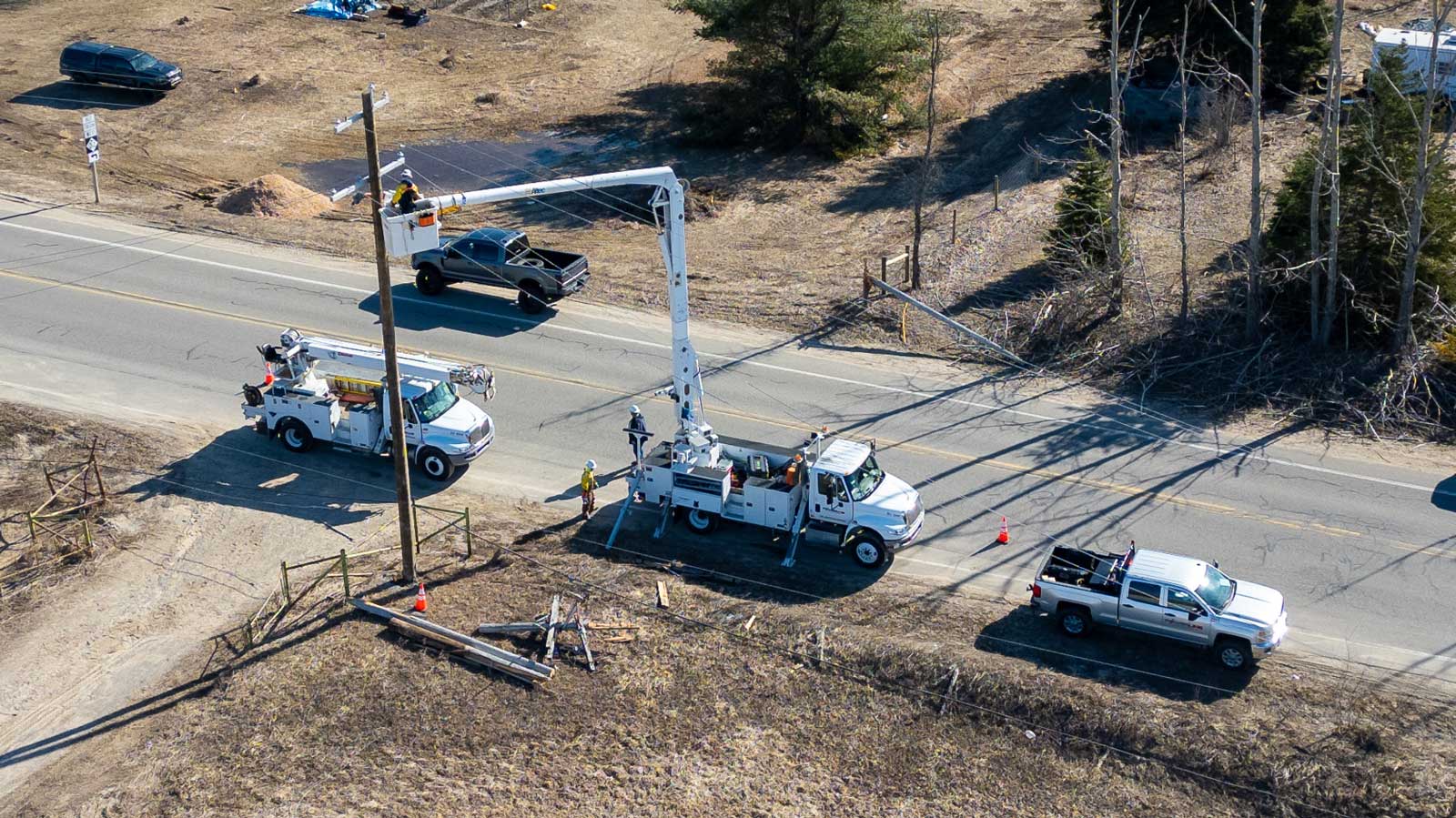When Michigan’s electric cooperatives faced one of the most destructive ice storms in state history last March, line crews braved freezing rain, fallen trees, and impassable roads to rebuild miles of damaged power lines and restore service to tens of thousands of homes. The storm caused more than $300 million in damage across rural Michigan, with the most severe impacts in Presque Isle Electric & Gas Co-op and Great Lakes Energy’s service territories.
Because electric cooperatives are not-for-profit and member-owned, every dollar spent on storm recovery ultimately affects local families, farmers, and small businesses. Without federal help, those costs fall directly on the people the co-ops serve.
Progress Achieved
After months of unified advocacy, President Donald Trump approved a federal disaster declaration on July 22, unlocking emergency funds to help rural communities recover. We’re grateful to Governor Gretchen Whitmer, Michigan’s bipartisan congressional delegation, and state legislative leaders for coming together to support co-op communities.
That approval was a critical first step, but it didn’t go far enough. The declaration covered emergency cleanup, but not the long-term rebuilding aid known as Category F (Utilities) funding.
Why Category F Matters
Category F assistance helps utilities rebuild permanently after disasters by repairing poles, wires, and substations so systems are stronger for the future. Without it, Presque Isle Electric & Gas Co-op and Great Lakes Energy will face lasting financial strain from the storm’s damage.
To put the challenge in perspective:
- Presque Isle Electric & Gas Co-op faced about $150 million in recovery costs, roughly $4,500 per member.
- Great Lakes Energy’s initial storm rebuilding and recovery cost was about $155 million, or 40 times its annual storm budget.
These figures reflect the storm’s extraordinary impact on northern Michigan and why continued federal support is essential to full recovery.
A Unified Grassroots Response
To help secure full recovery support, the Michigan Electric Cooperative Association (MECA) partnered with the cooperatives and National Rural Electric Cooperative Association (NRECA) to mobilize the Voices for Cooperative Power (VCP) platform. Together, we launched the Michigan Ice Storm Petition, urging the White House and FEMA to approve Category F funding for Michigan’s co-ops.
The petition focused on the hardest-hit areas served by Presque Isle and Great Lakes and gathered nearly 12,500 signatures from co-op members and advocates statewide. We recently delivered those signatures to the White House, ensuring that Michigan’s rural voices were heard at the highest level.
The Power of Cooperation
This effort shows what makes electric cooperatives unique. Working through MECA and NRECA, Michigan’s co-ops speak with one strong, unified voice representing rural homes, farms, and businesses across the state and nation.
Michigan’s electric cooperatives acted quickly, restored power safely, and stood by their communities in a time of crisis. Now, we’re asking Washington to stand by them.





